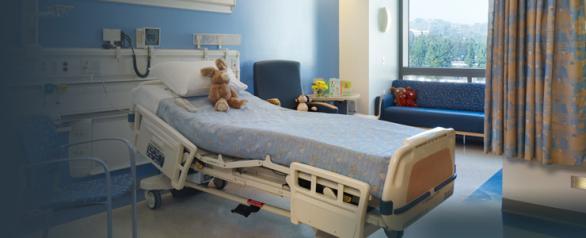All across the country, hospital visits are starting to feel a little bit more like a trip to a luxury resort. From room service to spa services to a room with a view, healthcare facilities are offering high-end amenities to entice new patients–and their insurers’ money.
All across the country, hospital visits are starting to feel a little bit more like a trip to a luxury resort. From room service to spa services to a room with a view, healthcare facilities are offering high-end amenities to entice new patients–and their insurers’ money.
The Ronald Reagan UCLA Medical Center opened its doors in 2008 and the luxe hospital’s “Better Way to Get Better” ad campaign featured private rooms, room service meals, massage therapists and views of Los Angeles. The campaign proved effective. According to the Hospital Consumer Assessment of Healthcare Providers and Systems, the proportion of patients who said they would recommend UCLA rose from 71% to 85% after the new and improved hospital opened.

Some hospitals are going so far as to provide concierge services and hire personnel from the hotel industry. Many hospital executives were skeptical when Gerard van Grinsven, was hired as president of the Henry Ford West Bloomfield Hospital in suburban Detroit in 2006. Van Grinsven was hired away from luxury hotelier, Ritz-Carlton; his two-decade career had been exclusively in hotels and resorts. Now, the Michigan hospital treats patients more like “guests,” in larger, hotel-like rooms. It even offers healthy cooking classes for patients and their visitors.
But for some patients, the amenities available at a hospital are actually more important than the care they are receiving. The PwC Health Research Institute reports that Americans think about healthcare much like any other consumer industry. Consumers have become accustomed to amenities like 24-hour Wi-Fi and PwC finds that the ideal patient experience is often built on non-clinical factors, such as convenience, customer service and staff attitudes.
“The voice of the customer may be the best kept secret in healthcare, but that’s changing as consumers exert greater control over how their healthcare dollars are spent and exercise power to vote with their feet and wallets,” said Kelly Barnes, U.S. Health Industries leader for PwC. “Hospitals and insurers are competing for loyal customers served by new care and coverage models in a more retail-oriented health market.”
When consumers were surveyed about the conveniences and services they value from hospitals and healthcare providers, nearly 70 percent said they want facilities that offer multiple services at a single location. Also high on the list, was the ability to exchange information through online and mobile channels of communication. And, not surprisingly, patients stressed the importance of a good hospital cafeteria and access to WiFi and other entertainment.
Gone are the days of inedible hospital food and sharing a room with a stranger, but how far is too far when it comes to hospital luxury? As we enter an unprecedented time of healthcare reform, what will luxury hospitals do to the cost of care? And can a luxe experience effect patient outcomes?